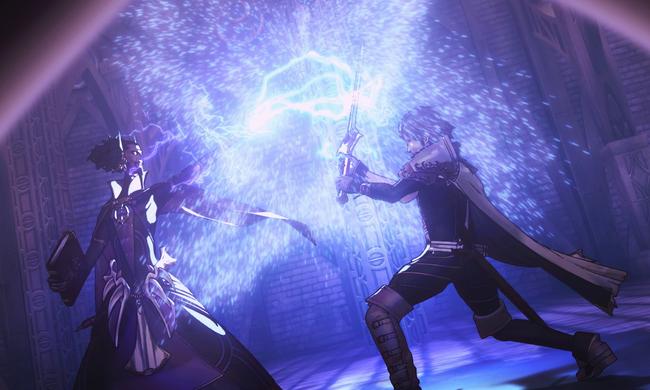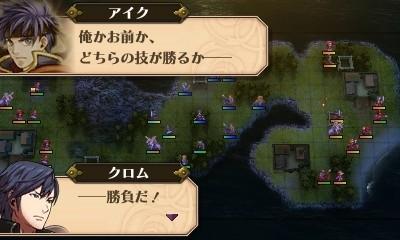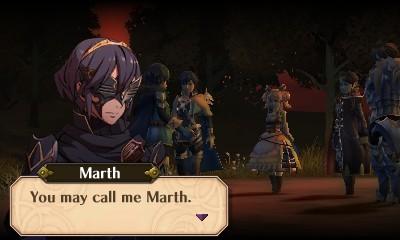
How Accessibility Tipped the Scales for Fire Emblem Awakening
It’s been 10 years since the release of Fire Emblem: Awakening - a milestone anniversary, and an occasion worth celebrating. Awakening isn’t just special for being ten years old, or being a great game, however - it’s also special because it reversed the fortunes of a beloved but ailing series.
Only a few franchises in video game history have found themselves on the verge of death before turning it all around in the span of a few years. When Nintendo issued Intelligent Systems an ultimatum to sell 250,000 copies of Fire Emblem: Awakening, the minds at Intelligent Systems pooled together to create a game they would feel proud of ending the Fire Emblem series on. The team’s efforts ultimately shattered targets, and Awakening was the shot in the arm the series desperately needed. The largest single contributor to its success? Well, I’d argue the greatest influence can be found in its accessibility.

As a hardcore strategy RPG, the Fire Emblem series pre-Awakening could be fairly rough for any newcomers hoping to break in. Personally, my first Fire Emblem game was Sacred Stones, followed by Path of Radiance. While I did like those games, the difficulty of them did force me to look up various walkthroughs on how to beat them.
Those games were my introduction to the strategy RPG genre as a whole, and while I did love strategy games back then and still do now, I wasn't the best at them. As a bit of a perfectionist, the series' infamous permadeath would sometimes stop me from playing. I didn't want to mess up one move and lose half an hour's worth of playtime. Path of Radiance, and later Radiant Dawn, were games that didn't have any grinding allowed either. For a young me, this was a big barrier.
Part of the reason why Fire Emblem: Awakening was such a success was how it was generous with its difficulty options. Newer players could pick Normal difficulty and Casual mode to get a feel for what it's like to play these kinds of strategy RPGs. This wasn’t without controversy, even within the development team. “That’s not Fire Emblem,” one official Nintendo interview notes some within Intelligent Systems argued.
“I was angry at the thought of going too casual,” said Genki Yokota, Awakening's co-director. “But in the end, we figured giving players a choice would help expand the appeal of the game.”
Yokota is right. For an increasing number of older gamers, time is precious. Losing time because of one mistake can be a big turnoff for some people. In this manner, Awakening allowed gamers to be able to take in the game's story at a pace that suited them, and the Normal difficulty also presented easy grinding options. I myself played in Classic mode since I did still want some of my moves to matter, but I played in Normal mode to start. I loved every second of Fire Emblem Awakening. All 800+ hours. Yes, that is my actual playtime.

Intelligent Systems added in a lot of callbacks to the series history in Awakening, just to make sure that if it was the end for the series, they made sure to pay tribute to it. "Marth" makes a reappearance in the story, and Tiki can also be recruited onto the team. One of the continents that the story moves to is Valm, the land that Fire Emblem Gaiden took place in. Players could also recruit Einherjars, cards that take the physical form of some of Fire Emblem's most famous characters throughout its history.
On top of it all, Fire Emblem: Awakening was a solid game itself. After the stiff animations that could be found in Path of Radiance and Radiant Dawn, Awakening finally nailed the look of battles. Characters move fluidly across the battlefield, supported by the dynamic camera that players could also adjust for better angles. While most missions were pretty simple, it did allow new players to ease into the combat without worrying too much about terrain differences. Most characters were viable, allowing players to raise whoever they wanted. The class system that was so rigid in past games was now much more fluid, allowing players to reclass characters as they saw fit. The freedom of choice in Awakening allowed players to experience the game the way they wanted to, instead of being pinned down by the difficulty of the game or old traditions.
Some of the more hardcore Fire Emblem fans often trash talk Awakening for being too easy and even slam some of the difficulty options. In this, older fans mirror the reaction of some at Intelligent Systems during the game’s development. The developers realized their mistake, however - and identified how vital Casual Mode and greater accessibility was to the game’s success.

In fact, I believe that the series would be dead and buried if it wasn't for these changes. Increasing the accessibility in a series that previously felt like it was only targeted for a certain audience was extremely helpful for keeping the series alive. It invited a new audience of players - while more hardcore options ensured long-time fans were still fully served. It helps that the game itself is still excellent in its own right, and its positive critical reception at a time when the 3DS was just starting to sell was a stroke of good luck, too - but the impact of clever changes to make the most accessible Fire Emblem ever at the time made a huge difference.
Fire Emblem: Awakening paved the way for Fire Emblem: Fates, which attempted to satisfy the new audience it gained from Awakening, as well as the older fanbase, with its twin games: Fire Emblem Fates Birthright and Fire Emblem Fates: Conquest. The success of these games, at least financially, guaranteed the series' future and even raised the series up to become one of Nintendo's most recognizable franchises. Fire Emblem Heroes is still Nintendo's most successful non-Pokemon mobile game by far, generating close to a billion US dollars as of February of this year. While some still hold a distaste for some of the changes it made, in a recent poll of Japanese gamers it ranked as the third most-loved title in the series, behind only Genealogy of the Holy War and Three Houses.
This past decade of Fire Emblem success was driven by a game that was supposed to be the series' last hurrah. The world loves an underdog story, and they seldom come better than this. Fire Emblem: Awakening has gone down in the history books of gaming as one of its biggest turnaround stories. So, here’s to Fire Emblem: Awakening. Thanks for the past 10 years of great Fire Emblem experiences - and for the series’ bright future this game helped to secure.